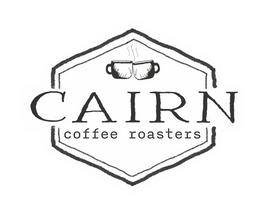Decaf - How Do They Do That?
Aug 24, 2025
Decaf Isn’t a Compromise
It’s a craft—just like everything else we roast.
Decaf gets a lot of side-eye. We’ve heard the jokes, seen the memes, and watched plenty of coffee lovers hesitate. But here’s the thing—when decaf is done right, it’s not a compromise. It’s a craft - the only thing you should be giving up is the caffeine.
Whether you're cutting back on caffeine or simply savoring a late-night cup, here’s what goes into making decaf worth drinking.
🔬 Swiss Water & Mountain Water Processes
These two are widely regarded as the most trusted chemical-free decaffeination methods in specialty coffee. Both use clean water, temperature, and time to gently remove caffeine while preserving the coffee’s origin character.
- Swiss Water is done in Canada using a proprietary green coffee extract (GCE) and carbon filtration to remove caffeine while retaining flavor compounds.
- Mountain Water, developed by Descamex in Mexico, uses glacial water from Pico de Orizaba and a similar filtration method to achieve a clean, chemical-free product.
The result? A cup that’s 99.9% caffeine-free, with flavor notes intact. Our Firelight Decaf is a blend of both Swiss Water and Mountain Water processed coffees from Brazil and Central America—crafted for clarity, comfort, and character.
The always informative and entertaining James Hoffman has a very helpful video here: The Secretive Decaf Process Using ONLY Water
🌿 Sugarcane / Ethyl Acetate Process
This method uses a naturally derived compound from fermented sugarcane. Beans are steamed and rinsed with ethyl acetate, which selectively bonds with caffeine. It’s especially popular in Colombia and tends to produce a sweet, mellow profile. Bonus: it’s considered one of the more sustainable options due to its use of renewable, locally sourced materials.
Descafecol in Colombia provides an overview of the process using naturally derived Ethyl Acetate from sugarcane: Productos Planta Descafeinadora - EN - Descafecol
💨 CO₂ Process
Using pressurized carbon dioxide, this method targets caffeine molecules while leaving flavor compounds largely intact. In its supercritical state, CO₂ acts like both a gas and a liquid, selectively dissolving caffeine while preserving delicate aromatics. The CO₂ is captured and reused in a closed loop, making the process both precise and environmentally efficient—though it remains less common due to cost and specialized infrastructure. Learn more from the Coffee Knowledge Guide by GEVI.
🧪 Solvent-Based Methods
Older methods use food-safe solvents like methylene chloride or synthetic ethyl acetate. While effective, they’re less favored in the specialty world due to potential flavor impact and transparency concerns—meaning consumers often aren’t told which solvent was used, or whether it was naturally derived. We steer clear of these in favor of more natural approaches.
☕ How Much Caffeine Is Left?
Even the best decaf isn’t 100% caffeine-free. A typical 8 oz cup of decaf contains about 2–5 mg of caffeine, compared to 70–140 mg in a regular cup. So yes—it’s safe for late nights, sensitive systems, and anyone looking to dial back the buzz.
🌎 Sustainability Snapshot: What Happens to the Water?
- Swiss Water & Mountain Water: These methods use more water overall, but they recycle and filter it through closed-loop systems. Swiss Water returns up to 85% of its water to the community as clean discharge.
- Sugarcane EA: Considered one of the more sustainable options due to its use of renewable, locally sourced materials - sugarcane and water.
- CO₂ Process: Minimal water use, but energy-intensive.
- Solvent-Based: Low water use, but transparency and disposal concerns make it less favored in specialty circles.
Why We Care
We believe decaf should be roasted with the same care and intention as any other coffee. That’s why we choose methods that align with our values—clean, sustainable, and flavor-forward. Regardless of the method used, we’re proud to offer decaf that’s worth sipping slowly.
